Readers who have followed me for any length of time know that I’ve pledged to never sell supplements or associate in any way with the supplement industry.
While there are a number of supplements that are helpful and some important for certain individuals for maintaining good health and avoiding deficiencies, the weight loss and muscle building segment of the supplement industry has always been notorious for making millions in profit selling bogus and ineffective products.
The truth is, research has revealed that there are no over the counter supplements that increase fat loss to any significant degree. There is no such thing as a natural fat burner pill. There may be some that slightly suppress appetite or are mildly thermogenic, but the effect over time is negligible.
The bodybuilding segment of the industry hasn’t been much better. Pills and powders have been touted as miracle muscle and strength builders since the dawn of the industry, and virtually all of them turned out to be snake oil.
There are a handful of products that may improve exercise performance slightly, but nothing to write home about. There is one exception. There is one performance and muscle-enhancing supplement that really works, with so much research backing its efficacy, that it would be unwise to ignore it. That supplement is creatine.
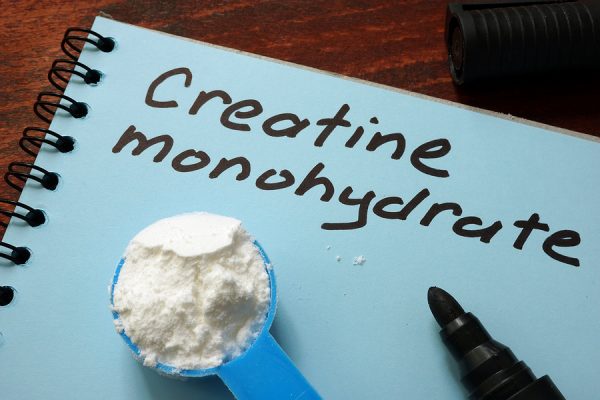
What is Creatine?
Creatine is the most popular nutritional ergogenic aid for athletes. It is a naturally occurring non-protein amino acid found in small amounts in animal-based foods such red meat and seafood. Creatine is also produced in your body from the amino acids arginine, glycine, and methionine, primarily in the liver and kidneys. The majority of creatine (95%) is stored in your skeletal muscles.
However, the amount of creatine produced by the body or provided from food is not enough to produce the benefits that higher doses can. A full pound of beef or salmon provides only about 1 to 2 grams of creatine. This is where creatine supplements come in.
Creatine monohydrate, as found in supplements, is a synthetic form of creatine that is the most widely used and researched type. It’s created by combining creatine with a water molecule, producing a crystalline white, odorless, powder that is tasteless and can be mixed with water, juice, or other liquids and them promptly consumed.
Creatine is a natural substance, not a drug, and therefore it is not banned by any sports organization. Being synthetic, creatine monohydrate is considered vegan unless it is put into capsules that also include bovine gelatin.
Creatine supplementation has been researched for decades, and its benefits and safety have been well-established. The International Society of Sports Medicine (ISSN), the American College of Sports Medicine (ACSM), the American Dietetic Association (ADA) and every other major nutrition and sports science organization in the world agree that creatine is the single most effective ergogenic supplement that exists.
How Does Creatine Monohydrate Work?
Supplemental creatine monohydrate works by increasing the amount of creatine in the muscles. When you consume creatine powder, it’s absorbed into your bloodstream and transported to your muscles. Once it reaches your muscles, creatine is converted into phosphocreatine and stored. Phosphocreatine is then used by the body to produce ATP (adenosine triphosphate), which is the primary source of energy for muscle contractions.
By increasing the amount of creatine in the muscles, creatine supplements can help to improve athletic performance, particularly during short-duration, high-intensity exercise such as weight lifting. This is because your body can produce ATP more quickly when there is more phosphocreatine available in your muscles. Essentially, what creatine does is to help your body replenish ATP faster which allows you to train harder and perform better.
After you start taking creatine and your muscles are fully loaded with creatine, you start noticing yourself doing more reps with the same weight, lifting more weight than before or both. You also see improvements in any kind of short burst exercise or sports. The difference isn’t massive, but it is noticeable.
Benefits of Creatine Monohydrate
Creatine monohydrate is one of the most extensively researched sports supplements in history with more than 1000 papers published. Studies on the effects of creatine have been ongoing since the 1990s and continue to this day. The initial interest in creatine was due to its effects on improving performance and muscle size. But subsequent research has revealed that creatine provides a wide range of benefits that go beyond sports nutrition and include potential health and therapeutic uses.
1. Improved Strength Athletic Performance
Creatine monohydrate supplementation has been shown to improve athletic performance in almost every sport and in a variety of exercises, including weightlifting, sprinting, jumping and high-intensity interval training. The major benefit of creatine is the way it enhances acute exercise capacity and training adaptations. It allows an athlete to do more work over a series of sets, which leads to greater gains in muscle mass, strength and athletic performance. Once the muscles are fully loaded with creatine, exercise performance is typically increased by 10% to 20%.
2. Increased Muscle Mass
One of the primary benefits of creatine monohydrate supplementation is an increase in muscle mass, especially in conjunction with a well-designed resistance training program. A major part of the increase in muscle is due to the improved training performance. However, creatine supplementation has also been shown to increase muscle protein synthesis. In addition, creatine draws water into the muscle cell, producing an additional volumizing effect and creating a more anabolic environment.
3. Enhanced Recovery
Creatine monohydrate supplementation may also enhance recovery after exercise. In a study published in the International Journal of Sports Medicine, participants who supplemented with creatine monohydrate showed less muscle damage and inflammation after a bout of resistance training compared to a placebo group. This suggests that creatine supplementation may help athletes recover faster from intense exercise.
In addition, consuming creatine and carbohydrate increases glycogen storage in the muscles. While creatine is more often used in strength and power sports, studies have found that creatine reduced inflammatory markers and muscle soreness in marathon runners, so it is not beneficial only for strength and physique athletes.
4. Injury Prevention
Several studies have found that creatine users have a lower incidence muscle strains, pulled muscles, non contact injuries and total injuries (and missed practices) than those not using creatine. While there are rumors circulated that creatine can cause dehydration or cramping, research has found the opposite. In one study, scientists followed an American football team for an entire season and reported significantly less incidence of muscle cramping, heat illness/ dehydration, muscle tightness, muscle strains and total injuries compared to athletes who did not supplement with creatine.
5. Injury Rehabilitation
In a study on patients who were rehabilitating after having their leg in a cast, the subjects who used creatine experience a 10% greater increase in muscle fiber size and a 25% increase in strength compared to a group that didn’t use the supplement. While creatine is designed to be taken in conjunction with a resistance training program, similar research suggests that creatine supplementation can reduce the amount of muscle atrophy and detrimental effects on muscle associated with immobilization.
6. Enhanced Tolerance To Exercise In The Heat
Creatine monohydrate is well known for its osmotic properties. This means it helps retain a small amount of water, which partly explains the weight gain reported by creatine users. (Over time there is also muscular weight gain). Researchers have found that the way creatine supplementation increases intracellular water, this promotes hyper-hydration and a more efficient thermoregulatory response during prolonged exercise in the heat. This can reduce risk of heat related illnesses.
7. Improved Brain Function
While most of the research on creatine monohydrate has focused on athletic performance, there is some evidence that creatine supplementation may improve brain function. A number of studies have shown that creatine supplementation can increase brain creatine content by 5% to 15%. Benefits observed in the research include reduced mental fatigue, improved working memory and better results on certain intelligence tests.
8. Neuro-protective Properties
Creatine monohydrate has been shown to have neuroprotective properties, which can help to protect the brain against damage and degeneration. It may also have potential therapeutic applications for neurological disorders such as Parkinson’s disease and Huntington’s disease.
9. Anti Aging
A growing body of evidence shows that creatine supplementation may improve health status as people age. Creatine studies have been done on subjects of all ages including the middle aged and elderly. The most obvious benefit is the retention of lean body mass and strength. This in turn helps minimize bone loss. The creatine and resistance training also improve functional capacity. Studies suggest benefits also include lower cholesterol and triglycerides, reduced fat accumulation in the liver, lowered homocysteine levels, enhanced glycemic control and antioxidant benefits.
What Is The Ideal Creatine Monohydrate Dosage?
The optimal dosage of creatine monohydrate varies depending on individual factors, such as body weight, muscle mass, and exercise habits. However, the most commonly recommended dosage is 3-5 grams per day. Larger athletes at a heavier body weight will typically lean toward the higher end of the dosage range.
Some athletes may choose to use a loading phase, which involves taking 20 to 25 grams of creatine per day for the first 5 to 7 days, followed by a maintenance dose of 3 to 5 grams per day. The loading phase is not mandatory but it does saturate the muscles faster so benefits can be obtained sooner.
Does coffee cancel out creatine benefits?
Caffeine and creatine are two of the most studied supplements in the world and both are considered effective for improving performance. Many athletes use both, and some even mix their creatine right in their coffee (creatine is more soluble in a warm beverage).
Since they both have benefits, it would appear that using both would be ideal. However, some concern has been expressed about whether they might negate each other. In one of the first studies on this subject, the researchers thought that caffeine would improve creatine absorption during the loading phase and make it more effective, not less. The creatine improved performance as expected, but adding caffeine did not improve the results. This made some people suspect that the caffeine somehow negated part of the creatine benefits.
A later study suggested that high dose caffeine might blunt the effect of creatine but this was never confirmed. What one group of scientists did discover is that high dose creatine combined with high dose caffeine caused stomach discomfort in some individuals and these symptoms could potentially reduce training performance.
To this day we don’t know for sure if there is an interaction with caffeine and creatine or what the mechanism of interference might be. There is a theory that creatine and caffeine might have opposing effects on muscle relaxation time, but a lot of experts today don’t believe there is any negative impact of taking creatine with caffeine. This is based on their personal experience plus reports from numerous athletes.
It does seem feasible that if taking creatine, even without caffeine, leads to any stomach or gastrointestinal upset, that could reduce performance. It’s possible that combining both high dose creatine with high dose caffeine could increase the risk of GI discomfort.
With this in mind, a possible solution is to skip the loading phase with high doses of creatine (20 to 25 grams), and simply start with the maintenance dose (3 to 5 grams), which is less likely to cause any stomach upset. It will take 3 to 4 weeks to reach creatine saturation in the muscles, but the end result is the same.
Another option, if you have any concern that there is indeed a creatine and caffeine interaction, is to separate your consumption of creatine and caffeine. Typically, caffeine is used before exercise, so you might use it 30 to 60 minutes before training. Then you could take the creatine several hours later (or before). This schedule is fine because while the timing of caffeine matters, the timing of creatine does not. Creatine is often included in pre workout supplements that contain caffeine but there is no particular reason you must use creatine right before a workout.
Does liquid creatine work?
Liquid creatine is a form of creatine supplement marketed as a more convenient and faster-absorbing alternative to traditional creatine monohydrate powder. However, the effectiveness of liquid creatine is debatable at best and most likely it is not effective. This is due to the fact that creatine does not remain stable in liquid for long.
When you put creatine monohydrate in liquid and leave it there too long, it breaks down into a byproduct called creatinine. This renders the supplement ineffective. You would be fine if you mixed your creatine with liquid in a shaker bottle and left it there for an hour or two. But when creatine drinks are manufactured in bulk and sit on shelves or in vending machines for days or weeks, it’s a certainty that the creatine has broken down.
Some sellers of liquid creatine may claim that it’s more rapidly absorbed by the body than creatine monohydrate powder. However, there’s little evidence to support the contention that liquid creatine works at all, let alone better than the monohydrate powder.
Supplement companies have been selling liquid creatine for years and continue to sell it because the beverage industry is so profitable and creatine is so well known as a legitimately effective supplement. But almost all of the research demonstrating effectiveness is based on using the monohydrate powder form. The proper usage is to stir the powder into liquid so it dissolves, and then promptly consume it.
There are numerous other forms of powdered or encapsulated creatine supplements as well, but it’s still recommended to stick with traditional creatine monohydrate powder, which has been extensively studied and shown to be safe and effective for most healthy adults.
Does creatine work for women?
According to surveys, far fewer women use creatine than men. However, creatine is an equally effective supplement for women looking to improve their athletic performance, increase muscle size and strength, and achieve their fitness goals.
While much of the research on creatine supplementation has focused on men, there is a growing body of evidence confirming the benefits of creatine for women.
The optimal dosage of creatine for women may be lower than that recommended for men, as women tend to have lower muscle mass and body weight. The daily maintenance dose for creatine is 3 to 5 grams per day. While there is no harm in women using a 5 gram dose, it’s more common for larger men to take the 5 gram dose, whereas smaller, lighter women may more often take only 3 grams per day.
One possible explanation for why fewer women use creatine is because one of the most common observed effect of creatine use is weight gain. In the short term this can be water retention in the muscles. And in the long term this can reflect increases in muscle mass.
In either case this side effect is positive, yet many women do not want to gain weight and when they see the scale tick up (or not go down as expected while dieting), they discontinue the supplement (or don’t begin using it in the first place). If women are looking for a safe, legal ergogenic aid to increase muscle, strength and performance, it would be unfortunate to miss out on these benefits. Creatine is not just for men.
Is Creatine Safe? Are There Any Side Effects?
It’s not uncommon to see reports made in the news or shared on social media suggesting that creatine is harmful. Fears range from severe ailments such as kidney dysfunction to more mild symptoms like dehydration, muscle strains, muscle cramps and gastrointestinal distress. These claims have been made without rigorous controlled clinical studies backing them up.
Creatine monohydrate is one of the most extensively researched supplements in history. Numerous studies have shown that creatine is completely safe when used as directed. According to the International Society of Sports Nutrition, creatine has never been associated with any adverse effects on health in any scientific study.
Long term studies on creatine safety have extended for as much as 5 years. In addition, creatine has been on the market since the early 1990s and billions of servings have been consumed since then without anecdotal reports raising any red flags.
Because a rare case study has popped up over the years regarding concerns over kidney function, scientists have performed studies to specifically examine this claim. Multiple studies found that even at loading doses and even after years of use, creatine had no negative effect on kidney functions including creatine clearance, glomerular filtration rate, tubular resorption or glomerular membrane permeability. If someone has pre-existing kidney disease, they might wish to consult their doctor before starting creatine. However the scientists who performed the studies on creatine and kidney function went as far as to say, “There is no compelling evidence that creatine supplementation negatively affects renal function in healthy or clinical populations.”
The only confirmed side effect of creatine that is consistently seen is weight gain. One study said the average is 2.9 pounds in 4 weeks. It’s also not uncommon for people to claim that they experience bloating or gastrointestinal upset after creatine use. Water retention is a known effect of creatine. However, that is hydration inside the muscle cell, which is a positive, not a negative.
Stomach discomfort or gastrointestinal distress is most often reported with creatine loading and or when high dose creatine is consumed with high dose caffeine. A simple solution is to skip the loading phase because loading is optional. Starting with and staying on the maintenance dose is a simple solution. Another is to take creatine with meals and also be sure the creatine is completely dissolved in liquid before consuming.
Conclusion
Given all the benefits combined with the safety record, it is not surprising that creatine monohydrate is the most popular sports supplement in the world. Creatine continues to be researched to this day, and not purely for building strength, gaining muscle and improving athletic performance, but also for general health and for specific clinical applications. Creatine has potential benefits even for untrained individuals and especially for people getting older. That said, creatine does not take the place of proper diet, and the benefits will be maximized only if you take it in conjunction with a well-designed, consistently followed resistance training program.

Tom Venuto is a natural bodybuilding and fat loss expert. He is also a recipe creator specializing in fat-burning, muscle-building cooking. Tom is a former competitive bodybuilder and today works as a full-time fitness coach, writer, blogger, and author. In his spare time, he is an avid outdoor enthusiast and backpacker. His book, Burn The Fat, Feed The Muscle is an international bestseller, first as an ebook and now as a hardcover and audiobook. The Body Fat Solution, Tom’s book about emotional eating and long-term weight maintenance, was an Oprah Magazine and Men’s Fitness Magazine pick. Tom is also the founder of Burn The Fat Inner Circle – a fitness support community with over 52,000 members worldwide since 2006. Click here for membership details

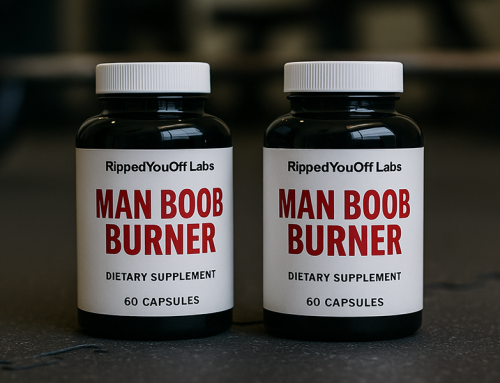

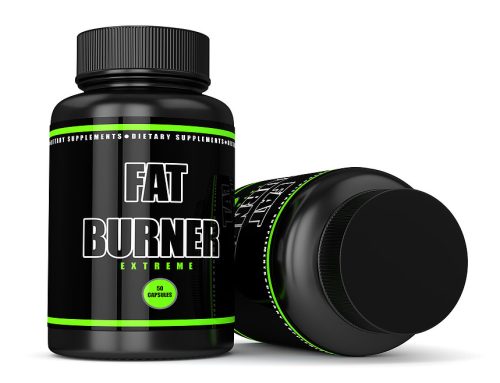
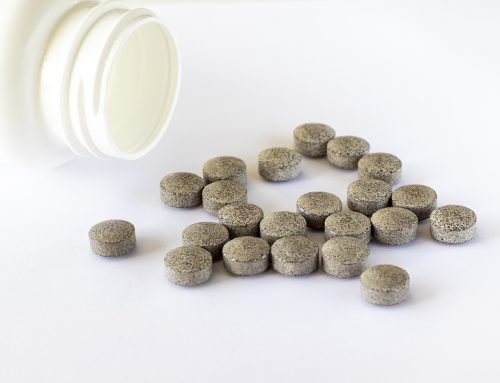
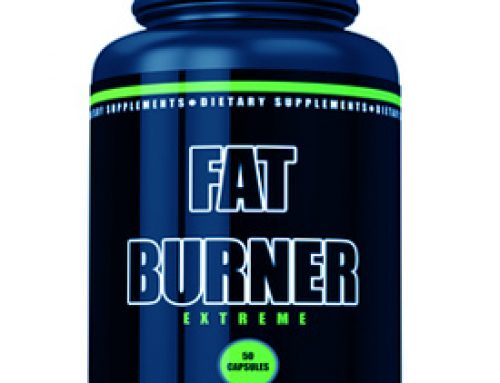
“Creatine is a natural substance, not a drug, and therefore it is not banned by any sports organization. Being synthetic, creatine monohydrate.. ”
Natural..synthetic..seem opposites?
Creatine is found naturally in many foods. Creatine *supplements* are synthetically produced. In other words, they are not extracted from food. but it’s the exact same molecule. Safe, legal, and not a drug